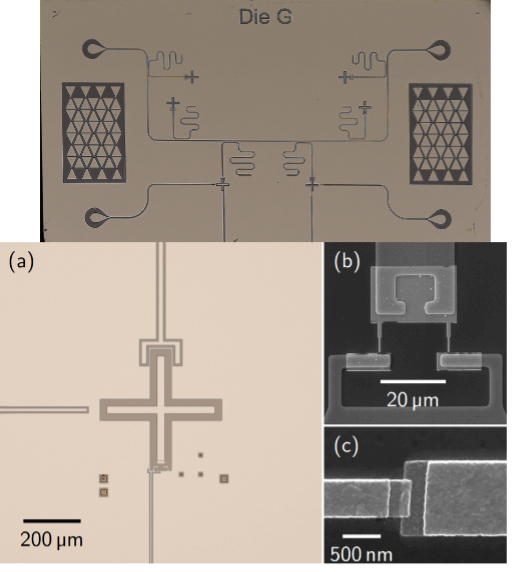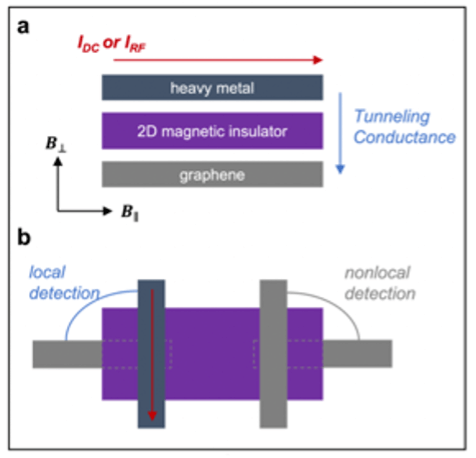Summary
Developing hybrid quantum systems is essential to harnessing the complementary advantages of different quantum technology platforms. This necessitates the successful transfer of quantum information between platforms, which can be achieved, e.g., by harnessing magnons, or spin wave excitations, in magnetic materials. Decoherence due to uncontrolled coupling of qubits to the environment remains a fundamental challenge in many current platforms but can be potentially overcome by harnessing magnon Bose-Einstein condensates (BECs) and non-Abelian Majorana fermion excitations that arise from a Kitaev quantum spin liquid (QSL). The goals of this project are (1) to generate and detect coherent magnons in 2D magnets for quantum magnonics; and (2) to induce collective quantum states in 2D magnets (magnon BECs and Kitaev QSLs), which can provide an alternative route to defeat quantum decoherence. 2D magnetic insulators interfaced with topological semimetals will be fabricated to generate and detect coherent magnons, magnon BECs and QSLs. Radio-frequency (RF) current driven through the metallic layers will yield a spin and/or anomalous Hall current that will exert torques and excite spin waves in the magnetic layers. The excited magnons will be detected using electron tunnelling. Success in these experiments will allow for alternative qubit implementations, which can significantly benefit the quantum technology sector, including mediating quantum information transfer in hybrid quantum systems and potentially being used as a platform for noise-tolerant quantum computing.
Related Content
Novel High-Speed Receiver for Quantum Communication and Sensing
Summary An essential aspect of a quantum channel is the detection and analysis of quantum signals in the form of photons. For most free-space applications, the photons are polarization encoded, e.g. by assigning the ‘0’ to horizontally polarized photons and ‘1’ to vertically polarized photons. However, where the geometric reference is not constant at all […]
January 1, 2019
Folk Understanding of Quantum Physics
Summary It is often said that quantum concepts are counterintuitive. However, quantum concepts may not be equally counterintuitive to people from all cultural backgrounds. As cultural psychologists have discovered, culture fundamentally shapes the way people make sense of the world. In particular, the last few decades of research have documented cultural differences in appreciation of […]
March 24, 2021

Building Blocks for Quantum Neuromorphic Computing: Superconducting Quantum Memcapacitors
Quantum neuromorphic computing (QNC) is a novel method that combines quantum computing with brain-inspired neuromorphic computing. Neuromorphic computing performs computations using a complex ensemble of artificial neurons and synapses (i.e., electrical circuits) to emulate the human brain. QNC may lead to a quantum advantage by realizing these components with quantum memory elements, or memelements, which […]
June 12, 2023



